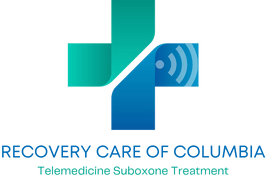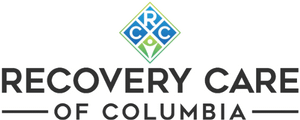Columbia Suboxone Clinic Blog
TennCare Suboxone Telemedicine Program
A Statewide Suboxone Telemedicine Program Accepting TennCare and Private Insurance
We provide a 100% telemedicine Suboxone program designed to help you overcome opioid addiction from the comfort of your own home. We currently accept the following TennCare Medicaid health insurance plans:
- TennCare AmeriGroup
- TennCare BlueCare
- TennCare United Healthcare
What About Medicare Health Insurance?
Please contact us if you have both Medicaid and Medicare plans. Many Medicaid/Medicare dual-policy holders qualify for coverage. We are happy to validate your insurance coverage prior to your visit.
We also accept the following commercial health insurance plans:
TennCare Medicaid
- Medicaid (TennCare)
- Amerigroup Medicaid Insurance
- BlueCare BCBS Medicaid Insurance
- United Healthcare Community Plan Medicaid
- Wellpoint Medicaid Insurance
Commercial Insurance
- Aetna
- Ambetter
- Anthem
- Ascension
- Behavioral Health Systems
- Blue Cross Blue Shield (All U.S. States)
- Cigna
- Humana
- Oscar
- UMR
- United Healthcare
Don’t Have Insurance? We Offer a Self-Pay Plan Starting at $210
For those who do not have qualifying health insurance, we offer a self-pay telemedicine program with two payment plans to help fit your budget:
- Pay $370 per month (Saves $50)
- Or, pay $210 every two weeks
Owned and Managed by People in Active Recovery
We understand first-hand what it’s like to be addicted to opioids. We also understand what it’s like to overcome opioid addiction using Suboxone treatment and one-on-one private therapy.
We’ve been to other clinics as patients and felt we could provide a better, more-professional experience for our clients. Having seen over 3000 patients since 2017 we feel we’ve found the right balance of treatment, personalization and attention to detail that our clients appreciate.
Great addiction treatment doesn’t happen by accident. It takes a team of people who genuinely care about helping others through the path of recovery. This path is not for everyone. That’s why we take our time when hiring our administrators, counselors and Suboxone doctors. Finding people who can do their job is easy. Finding people who have a passion for for what they do takes a lot of time and effort – effort we think is critical since it means providing outstanding addition treatment to very patient who comes through our door, or appears on our computer screens.
We’ve Taken Suboxone Telemedicine to a Whole New Level
Recovery Care has developed a proprietary system for delivering outstanding addiction treatment using Suboxone to a whole new level. Not only are all of our clinics BeSmart-certified by the State of Tennessee and TennCare health insurance, we provide a telemedicine Suboxone maintenance program that is state-of-the-art and a pleasure for all of our Tennessee clients.
We Serve ALL of Tennessee
If you live in the state of Tennessee and are suffering from opioid addiction we can help! Our TennCare Suboxone telemedicine program is so unique that we can literally provide addiction treatment by computer or mobile device to anyone who lives in the state of Tennessee. Suboxone telemedicine appointments work very much the same as in-clinic appointments. Our clients can expect the same great recovery experience whether coming to the clinic or visiting with us online.
How do Suboxone Telemedicine Visits Work?
Clients undergo a virtual drug screen, visit one-on-one with a therapist, and then visit with an addiction physician.
Program Requirements
- Live in the state of Tennessee
- Possess a TN driver’s license or state-issued photo ID
- Have a history of opioid use
What if I Already See a Suboxone Doctor and Want to Switch to Recovery Care?
Great question! Moving your Suboxone treatment to Recovery Care is easy:
- Submit your intake documents online
- A representative will contact you by phone
- You’ll be scheduled for the soonest available appointment at one of our locations
- We’ll request a transfer of records
- That’s it!
Suboxone Telemedicine is the Most Convenient Way to get Opioid Addiction Treatment
Visits are usually less than one hour and can be done from most anyplace that you have high-speed internet and some privacy.
TennCare Suboxone Telemedicine Program Guidelines
Schedule a Suboxone Telemedicine Appointment | Schedule a Suboxone Clinic Appointment
Recovery Care’s TennCare Suboxone Telemedicine Program means that anyone who lives in the state of Tennessee can now undergo opioid addiction treatment from the comfort of their home. Whether you have TennCare’s AmeriGroup, BlueCare or United Healthcare insurance the program is the same.
Below is a general outline of program guidelines that you should know before starting a telemedicine Suboxone program. Keep in mind, most guidelines are those imposed by state or federal rules and regulations. Our mission is to make these guidelines as transparent to you as possible so you can get the most out of your Suboxone maintenance program.
Required Visits
All new patients are required to attend a specific series of treatment visits in order to qualify for ongoing addiction treatment. Patients who relapse are required to follow this same schedule per state and federal guidelines*:
- 5 consecutive weekly appointments (Induction & Stabilization)
- 2 to 4 bi-weekly appointments (Maintenance 1)
- Monthly visits for as long as you remain in treatment (Maintenance 2)
*Patients coming from an existing Suboxone treatment program who are in good standing may have fewer visit requirements.
High-Speed Internet and Camera / Webcam Required
You will need a phone, tablet or PC with a camera or webcam connected to high-speed internet for all of your virtual doctor, therapy and drug screen appointments.
Be Flexible with Your Appointment Time
Telemedicine patients are asked to be flexible with their appointment times. Visits with a physician, therapist and lab personnel take approximately 30 to 45 minutes in total. However, minor delays may occur as a result of technical issues and other unforeseen issues.
A Video Drug Screen is Required at Each Visit
We will mail a telemedicine drug testing kit to every patient after their first visit. A video drug screen is performed at each visit. This kit will need to be with you on appointment days regardless of your location.
How Long Should I Stay in a Suboxone Maintenance Program?
The length of time someone stays in a Suboxone maintenance program is a personal decision. Your Suboxone doctor will provide assessments to guide you throughout your recovery program.
At one time it was believed that six months was sufficient. Now that addiction is recognized as a disease the opinions and viewpoints have changed dramatically.
Example: A diabetic takes insulin to keep their health in good order. Without insulin a diabetic gets very ill and is unable to function normally. Opioid addiction is no different. Someone who’s addicted to opioids feels a strong chemical imbalance, especially soon after ending opioid intake. This is known as “opioid withdrawal” and it’s an extremely uncomfortable situation for anyone who’s experienced it. Opioid withdrawal can last for days or even weeks, depending on the strength and usage of the opioids taken over time. This varies by individual.
Bad Decisions Are Often Made by Good People When Experiencing Opioid Withdrawal
During opioid withdrawal the addicted person will do most anything to relieve themselves of the pain and discomfort they are experiencing. This period of time is often when very poor decisions are made to find relief including stealing narcotic drugs, buying opioids on the street and often escalating their drug use of of financial necessity.
Pills purchased on the street can be very expensive. Heroin on the other hand is much cheaper and often much stronger than oxycodone, OxyContin, hydrocodone, Percocet, etc. Heroin becomes the cheapest option to end the withdrawals and provide what feels like “balance” to the addicted body and brain.
The most dangerous thing about heroin is that it’s typically not heroin at all.
Fake Pills Laced with Fentanyl Causing Overdoses
These Days Heroin is Really Fentanyl. The Question is, How Much Fentanyl is in There?
According to the USDA, fentanyl is 50 to 100-times stronger than morphine. It only takes the equivalent of two grains of salt worth of fentanyl to be a fatal dose. Read more: https://www.cdc.gov/stopoverdose/fentanyl/index.html
If you know someone who’s buying pills on the street, it’s safe to assume they are gambling with their life.
Read more about fake pills being laced with fentanyl:



